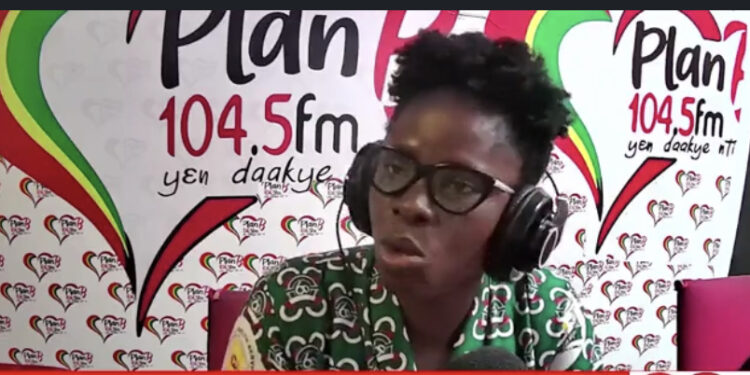Anemia is when you don’t have enough red blood cells to carry oxygen throughout your body. When your body doesn’t get enough oxygen from your blood, it can’t function properly. A person who has anemia during pregnancy is considered anemic.
A Nutritionist Officer from Tema Polyclinic madam Rejoice Lovinyeku speaking on Plan B FM morning show NKOSUONSEM, told Nana Yaw Abrompah that, the red blood cells (RBCs) contain an important protein called hemoglobin, and this protein holds oxygen and helps the red blood cells carry oxygen from the lungs to the body.
It also helps carry carbon dioxide from the body to the lungs so breathing out could take place.
She said to produce RBCs and hemoglobin, the body needs consistent supply of iron and vitamins.
“Without that supply, your body won’t produce enough hemoglobin to properly carry oxygen to your organs. It’s common for women to become anemic during pregnancy because they don’t have enough iron and other vitamins and pregnant women need to be eating right” she explained
She emphasized that throughout pregnancy, the amount of blood in the body increases by 20% to 30%. That means the body needs more iron for more red blood cells.
She outlined some factors that may lead to a higher risk for anemia during pregnancy,
Pregnant with multiples;
Not consuming enough iron, having back-to-back pregnancies with minimal time between, experiencing a heavy menstrual flow before pregnancy
and vomiting often because of morning sickness.
She also explained that anemia affects the baby during pregnancy because the developing foetus relies on the mother to get enough iron, vitamin B12, and folic acid, Anemia can affect the growth of the fetus, especially during the first trimester.
“If anemia goes untreated, the baby is at a higher risk of having anemia after birth, which can lead to developmental problems. Also, anemia increases the risk of delivering your baby early and having a low-weight baby”, she added.










Discussion about this post